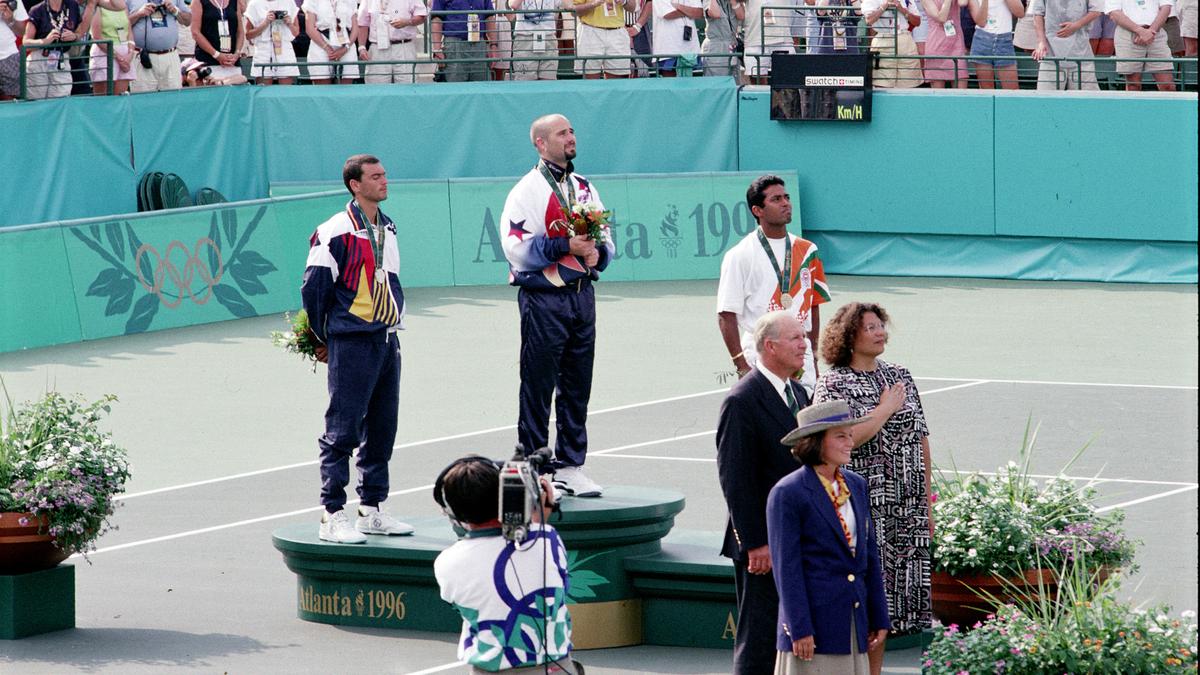1996 Olympics Special Interview – Leander Paes: It was nothing less than magic
Barcelona brought me closer to a lot of legends, but it also taught me a lesson. By the time my first Olympics campaign was over, I realised that if I have to win a medal four years later, I’ll have to focus on singles.
Over the next four years, I worked extremely hard for my singles and prepared my body and tennis specifically for the altitude conditions I was going to face at Stone Mountain in 1996. I travelled to far off countries like Ecuador, Colombia, Brazil, just to make sure that my body and mind were acclimatising well. And then, Atlanta happened!
As we checked in at the Games village, it was a surreal feeling with so many top athletes from around the world competing in their respective disciplines. I was just 24, but I had the confidence, so soon after the signing-in session at the Georgia Tech University, I told myself, “the Olympic mission has started!”
It’s easy to write it now, but even at that point in time, I thought that something magical would happen over the next few days and being a strong believer in destiny, things just fell into place.
It was nothing less than magic.
I still remember the words of our non-playing captain Jaidip Mukerjea after the draw was released. “Tough luck, Lee. Tough draw…,” Uncle Jaidip told me as I was to play Pete Sampras, who by then was pretty much the world No. 1, in the opener!
I prepared hard and left no stone unturned for the tournament, but after seeing the draw, I went blank and did not know what to do. As luck would have it, we found out that Richey Reneberg was replacing Sampras, who had withdrawn.
Back then, Richey was among the top 20 in singles. I knew it was going to be a tough match. I lost the first set, but won the second, and after running him around for two sets, in the third set, when I got up for a break, Richey retired from exhaustion! In the second round, I played Nicolas Pereira of Venezuela, followed by Thomas Enqvist in the third round and Renzo Furlan in the quarterfinals.
And, there came Andre Agassi in the semifinals!
Even though we had a great fight, Andre’s backhand ruptured a few tendons in my right playing wrist. It made things difficult for me and Andre reached the final! I had to face Fernando Meligeni from Brazil for the bronze. After the game against Andre, I had my wrist wrapped in a solid cast for 24 hours to try and heal my injury as fast as I could.
On the match-day morning, with the first touch of the ball, I realised I was in trouble. The pain that shot through my wrist into my arm was unbearable and I had to stop my warm-up after the first shot. But I did not give up.
The words of Muhammad Ali, who I met at the Opening Ceremony, resonated in my mind. He had told me that I was embarking on a special journey and that it should inspire each and every young child in India.
By then, most of our athletes had failed to clinch medals and the pressure was mounting up and I knew that I could not miss out on the opportunity of clinching India’s second individual medal — 44 years after Khashaba Jadhav won a bronze in wrestling in Helsinki.
But throughout the tournament, my team ensured that we did not discuss anything about winning or losing. My parents, my sister and a few dear friends were with me around that time and I spent a lot of time with them, just talking about everything else except my performance. That approach helped me handle the trickiest of the situations. To keep myself calm, I listened to a lot of music and my playlist would revolve around the numbers by Gipsy Kings, Sting, A.R. Rahman and Michael Jackson. That would keep me in my zone.
And that mental toughness reflected in my game during the bronze medal fixture. I knew the match was going to test my mental strength. In the first set, I was unable to have control in my playing wrist and lost. In the second set, I shifted gears and was able to bounce back and win, with two breaks.
But in the third set, I found myself several break points down early. Fernando and I traded breaks and I protected my injured wrist by making shorter rallies.
My aggressive tennis mounted the pressure on Fernando, and when his final passing shot down match point sailed over my head and beyond the baseline, my hands went up in the air. And the tears rolling down my cheek were not only for the triumph, but also for the pain I endured to win a medal for my country. It indeed was a proud moment! As I returned to our base, the entire Indian contingent cheered for me. I met Ali at the locker room after the game, and only then did it sink in that I have actually fulfilled my dreams. He congratulated me, hugged me and being one of his biggest fans, I couldn’t have asked for more. It was an emotional moment.
As told to Shayan Acharya


